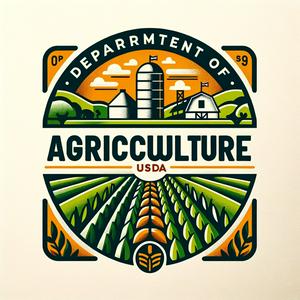USDA's $8M for Wildfire Resilience Projects, Org Shakeup, and School Meal Updates
The biggest headline from the Department of Agriculture this week is that the USDA is investing over $8 million in five new forest health resilience projects aimed at reducing wildfire risks, protecting water quality, and boosting timber production across several states. This is part of a broader partnership between the Natural Resources Conservation Service and the Forest Service under the Joint Chiefs’ Landscape Restoration Program. Forest Service Chief Tom Schultz put it simply, “Wildfires have no boundaries, and neither should our prevention work.” These projects bring together state officials, private landowners, and industry to tackle wildfire and resilience at a landscape scale—directly affecting communities in Alabama, Colorado, Wyoming, Montana, North Carolina, and Oregon.This approach means more jobs, better wildfire preparedness for rural America, and improved forest resources that both the timber industry and recreation communities rely on. It’s a win not just for the environment but also for local economies and public safety. For American citizens in these regions, it could translate to fewer catastrophic wildfires and better air and water quality. Businesses and landowners benefit from support in managing resources, while state and local governments gain new tools for mitigation, emergency response, and long-term economic planning. Internationally, strong forest and wildfire management strengthens America’s export position for wood products and sets an example in global climate and resource stewardship.There’s also been major movement in USDA policy and organization. Under Secretary Brooke Rollins, the department kicked off a wide-ranging reorganization to restore its agricultural focus. Secretary Rollins stated, “We are returning to our founding mission, sharpening the focus on supporting American farmers, ranchers, and foresters.” The public comment period for this reorganization plan has been extended to September 30, 2025, giving everyone a chance to weigh in on the USDA’s direction for the next decade. You can share your thoughts directly through the USDA website.Meanwhile, new school meal nutrition standards are set to roll out gradually from 2025 through 2027, including decreases in sodium and limits on added sugars. The USDA says schools won’t have to change menus for the coming year, giving districts, the food industry, and families time to adapt. And for agricultural producers, the USDA’s Farm Service Agency has released updated September lending rates, with operating loans at 4.875% and ownership loans at 5.875%, offering affordable avenues for farmers to grow or sustain their operations.What should listeners keep an eye on next? The outcomes of the new forest resilience projects, the impacts of streamlined NEPA environmental rules, and the eventual USDA reorganization. If you have feedback on the reorganization, you have until September 30th to submit your thoughts. For producers, more details are at your local service center or at farmers.gov. And if you’re a parent, educator, or school nutrition professional, watch for updates on phase-in dates and training opportunities through USDA’s Food and Nutrition Service.Thanks for tuning in to this week’s update on the Department of Agriculture’s latest headlines and their impact on our daily lives. Don’t forget to subscribe to stay current on changes that affect your community. This has been a quiet please production, for more check out quiet please dot ai.For more http://www.quietplease.aiGet the best deals https://amzn.to/3ODvOta


